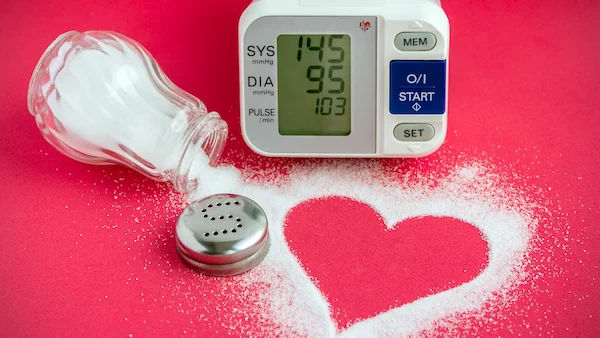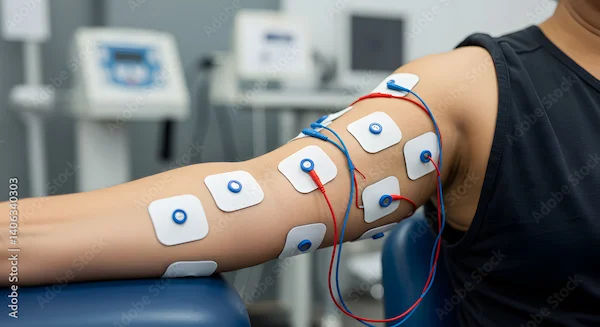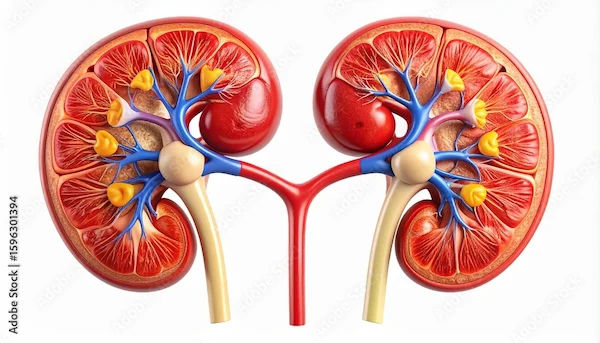VDRL Full Form and Significance
Discover the full form of VDRL and its crucial significance in medical diagnosis. Learn what this important blood test detects, why it's performed, and what its results indicate for your health.


Introduction
If you’ve come across the term VDRL in a medical report or during a doctor’s visit, you might be wondering what it means and why it’s important. This simple blood test plays a crucial role in detecting certain infections, and understanding it can help you take better care of your health.
What is VDRL?
VDRL stands for Venereal Disease Research Laboratory. It is a blood test primarily used to screen for syphilis, a sexually transmitted infection (STI) caused by the bacteria Treponema pallidum. The test checks for antibodies—proteins your immune system produces when fighting an infection.
While VDRL is mainly associated with syphilis, it can also indicate other health conditions, making it a useful diagnostic tool.
Get Your Symptoms Assessed
Why is the VDRL Test Done?
Doctors may recommend a VDRL test for several reasons:
1. Screening for Syphilis – Since syphilis can sometimes show no symptoms, screening helps in early detection and treatment.
2. Prenatal Care – Pregnant women are often tested because untreated syphilis can harm the baby.
3. Monitoring Treatment – If you’ve been diagnosed with syphilis, the test helps track how well treatment is working.
4. Evaluating Symptoms – If you have signs like rashes, sores, or unexplained fever, your doctor may order this test.
Get Your Symptoms Checked By Top Specialists
How is the VDRL Test Performed?
The test is simple and quick:
A small blood sample is taken from your arm.
The sample is sent to a lab for analysis.
Results are usually available within a few days.
No special preparation is needed, but inform your doctor if you’re taking any medications, as some can affect results.
Understanding VDRL Test Results
Non-Reactive (Negative): No syphilis antibodies detected. However, if you’ve been recently exposed, retesting may be needed.
Reactive (Positive): Antibodies are present, suggesting syphilis or another condition. Further tests (like FTAABS or TPHA) confirm the diagnosis.
A false positive can happen due to infections like malaria, lupus, or even pregnancy. That’s why doctors often order additional tests for accuracy.
What Happens if the Test is Positive?
If syphilis is confirmed, antibiotics (usually penicillin) can effectively treat it. Early treatment prevents complications like:
Skin rashes and sores
Organ damage (heart, brain)
Neurological problems (if untreated for years)
Tips for Prevention and Management
The tips for prevention and management:
1. Practice Safe Sex – Use protection to reduce the risk of STIs.
2. Get Regular Screenings – If sexually active, periodic testing helps in early detection.
3. Complete Treatment – If diagnosed, follow your doctor’s advice strictly.
4. Inform Partners – If you test positive, your partner(s) should also get tested.
When to See a Doctor?
Consult a doctor if you:
Notice unusual sores, rashes, or discharge
Have had unprotected sex with a new partner
Are pregnant and haven’t been tested
Early detection and treatment make a big difference in recovery!
Schedule a VDRL Test with Apollo 24|7
If you need a VDRL test or have concerns about syphilis, Apollo 24|7 offers easy online booking for lab tests and doctor consultations. Getting tested is simple, confidential, and helps you stay on top of your health.
Final Thoughts
The VDRL test is a valuable tool in detecting syphilis and ensuring timely treatment. If you’re at risk or experiencing symptoms, don’t hesitate to get tested. Your health matters, and early action can prevent serious complications.
Consult Top Specialists
Get Your Symptoms Checked By Top Specialists

Dr. Mohamed Azeem
General Physician/ Internal Medicine Specialist
2 Years • MBBS,MD(Internal Medicine) CCEBDM
Karaikudi
Apollo Hospitals Karaikudi, Karaikudi

Dr. Sunil Nigam
General Physician/ Internal Medicine Specialist
48 Years • MBBS, MD ( General Medicine)
New Delhi
VIVA VISION, New Delhi

Dr. Karan Goel
General Physician/ Internal Medicine Specialist
11 Years • MBBS, MD (Paediatrics)
Kolkata
Little Steps Clinic, Kolkata

Dr. Mijanur Rahaman Mondal
General Practitioner
3 Years • MBBS
Kolkata
Dr Utsa Basu Clinic, Kolkata
(25+ Patients)
Dr. Sujay P R
General Physician/ Internal Medicine Specialist
3 Years • MBBS
Bengaluru
PRESTIGE SHANTHINIKETAN - SOCIETY CLINIC, Bengaluru
Consult Top Specialists

Dr. Mohamed Azeem
General Physician/ Internal Medicine Specialist
2 Years • MBBS,MD(Internal Medicine) CCEBDM
Karaikudi
Apollo Hospitals Karaikudi, Karaikudi

Dr. Sunil Nigam
General Physician/ Internal Medicine Specialist
48 Years • MBBS, MD ( General Medicine)
New Delhi
VIVA VISION, New Delhi

Dr. Karan Goel
General Physician/ Internal Medicine Specialist
11 Years • MBBS, MD (Paediatrics)
Kolkata
Little Steps Clinic, Kolkata

Dr. Mijanur Rahaman Mondal
General Practitioner
3 Years • MBBS
Kolkata
Dr Utsa Basu Clinic, Kolkata
(25+ Patients)
Dr. Sujay P R
General Physician/ Internal Medicine Specialist
3 Years • MBBS
Bengaluru
PRESTIGE SHANTHINIKETAN - SOCIETY CLINIC, Bengaluru





